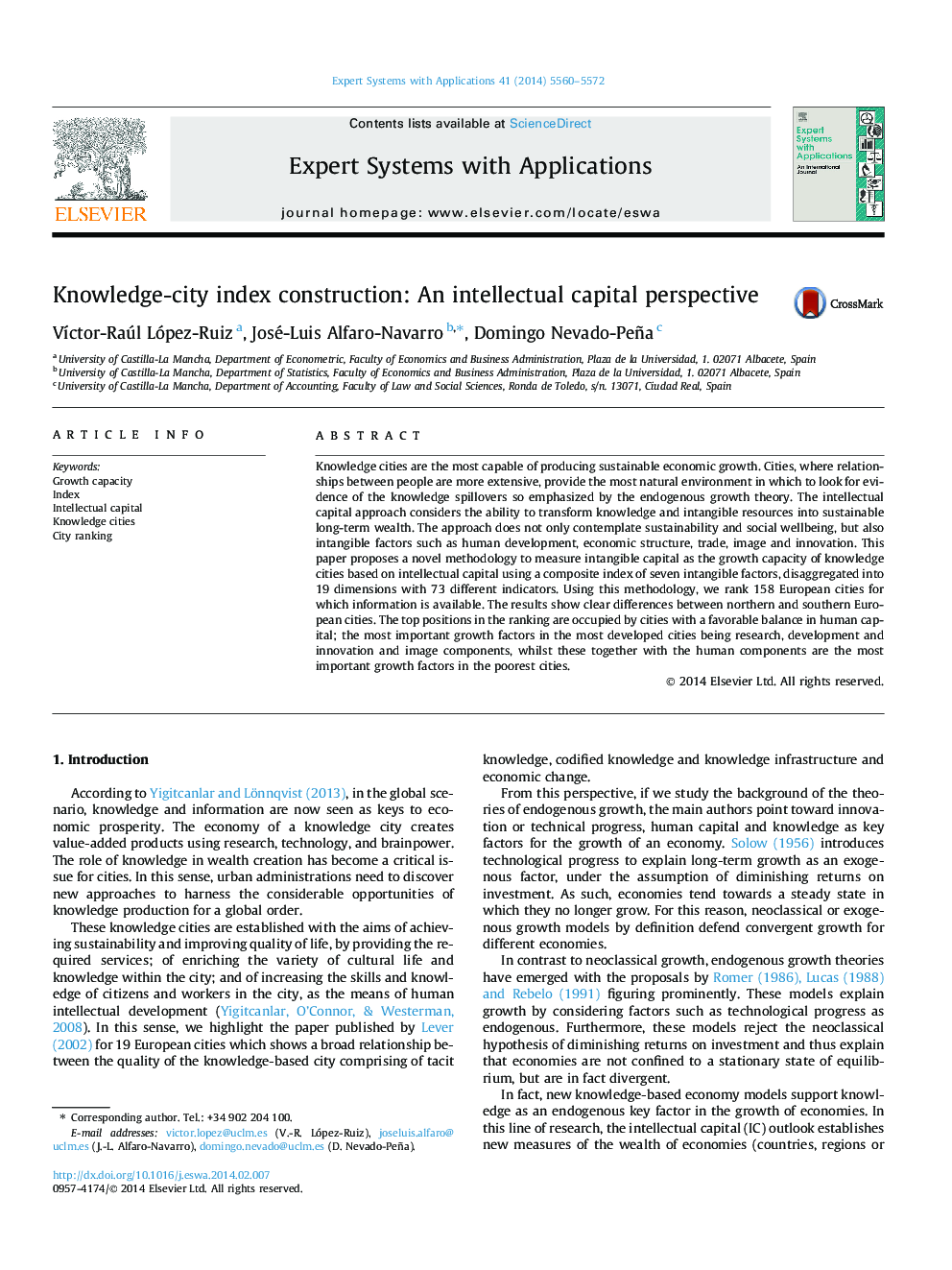| Article ID | Journal | Published Year | Pages | File Type |
|---|---|---|---|---|
| 383241 | Expert Systems with Applications | 2014 | 13 Pages |
•The paper classifies and reviews popular city indices.•The paper proposes a novel methodology to measure intangible capital as the growth capacity of knowledge cities.•The paper applies the proposed methodology in the European context.
Knowledge cities are the most capable of producing sustainable economic growth. Cities, where relationships between people are more extensive, provide the most natural environment in which to look for evidence of the knowledge spillovers so emphasized by the endogenous growth theory. The intellectual capital approach considers the ability to transform knowledge and intangible resources into sustainable long-term wealth. The approach does not only contemplate sustainability and social wellbeing, but also intangible factors such as human development, economic structure, trade, image and innovation. This paper proposes a novel methodology to measure intangible capital as the growth capacity of knowledge cities based on intellectual capital using a composite index of seven intangible factors, disaggregated into 19 dimensions with 73 different indicators. Using this methodology, we rank 158 European cities for which information is available. The results show clear differences between northern and southern European cities. The top positions in the ranking are occupied by cities with a favorable balance in human capital; the most important growth factors in the most developed cities being research, development and innovation and image components, whilst these together with the human components are the most important growth factors in the poorest cities.
